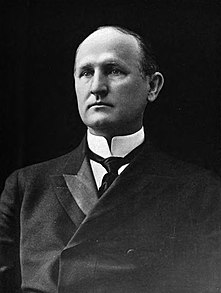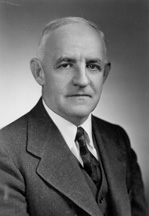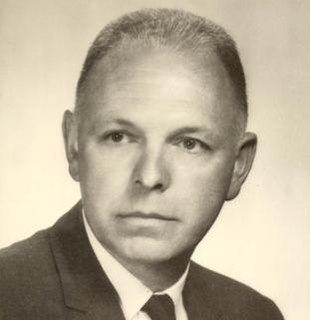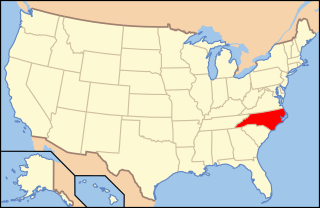
The University of North Carolina at Chapel Hill is a public research university in Chapel Hill, North Carolina. The flagship of the University of North Carolina system, it is considered to be a Public Ivy, or a public institution which offers an academic experience equivalent to an Ivy League university. After being chartered in 1789, the university first began enrolling students in 1795, making it one of the oldest public universities in the United States. Among the claimants, the University of North Carolina at Chapel Hill is the only one to have held classes and graduated students as a public university in the eighteenth century.

Orange County is a county located in the U.S. state of North Carolina. As of the 2010 census, the population was 133,801. Its county seat is Hillsborough.

A filibuster is a parliamentary procedure where one or more members of a legislature debate over a proposed piece of legislation to delay or entirely prevent a decision being made on the proposal. It is sometimes referred to as "talking a bill to death" or "talking out a bill" and is characterized as a form of obstruction in a legislature or other decision-making body.

Robert Walter "Bob" Scott was an American politician who served as the 67th Governor of North Carolina from 1969 to 1973. He was born and died in Haw River, North Carolina.

Charles Brantley Aycock was the 50th Governor of the U.S. state of North Carolina from 1901 to 1905. After starting his career as a lawyer and teacher, he became active in the Democratic Party during the party's Solid South period, and was a strong proponent of the white supremacy campaigns of that period. Aycock was one of the leading perpetrators of the Wilmington insurrection of 1898, in which whites took over the city government by force, the only successful coup d'état in U. S. history.

Timothy Keith Moore is an American attorney and politician who has been the speaker of the North Carolina House of Representatives since 2015. A Republican, Moore represents the 111th State House District, which includes Cleveland County. Moore was first elected to the state House in 2002.

Kay Ruthven Hagan was an American lawyer, banking executive, and politician who served as a United States Senator from North Carolina from 2009 to 2015. A member of the Democratic Party, she previously served in the North Carolina Senate from 1999 to 2009. By defeating Republican Elizabeth Dole in the 2008 election, she became the first woman to defeat an incumbent woman in a U.S. Senate election. She ran for reelection in 2014 but lost to Republican Thom Tillis, Speaker of the North Carolina House of Representatives, in a close race.

Frank Porter Graham was an American educator and political activist. A professor of history, he was elected President of the University of North Carolina at Chapel Hill in 1930, and he later became the first President of the consolidated University of North Carolina system.

The Alaska House of Representatives is the lower house in the Alaska Legislature, the state legislature of the U.S. state of Alaska. The House is composed of 40 members, each of whom represents a district of approximately 17,756 people per 2010 Census figures. Members serve two-year terms without term limits. With 40 representatives, the Alaska House is the smallest state legislative lower chamber in the United States.

The Dialectic and Philanthropic Societies, commonly known as DiPhi or The Societies, are the original collegiate debating societies at the University of North Carolina at Chapel Hill, and together comprise the oldest student organization at the University, as well as the oldest public student organization in the United States. During the academic year, the Societies hold regular meetings at 7:30 PM on Mondays in the Dialectic Chamber.
In response to court action in a number of states, the United States federal government and a number of state legislatures passed or attempted to pass legislation either prohibiting or allowing same-sex marriage or other types of same-sex unions.

Joseph Carlyle "Lyle" Sitterson was an American educator who served as chancellor of the University of North Carolina at Chapel Hill from February 16, 1966, to January 31, 1972.
The Black Student Movement (BSM) is an organization at the University of North Carolina at Chapel Hill. It is the second largest student-run organization and one of the largest cultural organizations on the school's campus. The organization was created on November 7, 1967 to combat problems of black recruit, admissions, and integration on UNC-CH campus. Black Student Movement has created many subgroups and committees such as: Opeyo! Dance Company, Celebration of Black Womanhood (CBW), Emphasizing Brotherhood Across Campus Effectively (EmBrACE), Harmonyx A Capella, UNC Gospel Choir, Ebony Reader's Onyx Theatre (EROT), Black Ink and the Political Action Committee (PAC) to name a few.
Same-sex marriage has been legally recognized in the U.S. state of North Carolina since October 10, 2014, when a U.S. District Court judge ruled in General Synod of the United Church of Christ v. Cooper that the state's denial of marriage rights to same-sex couples was unconstitutional. The state's Governor and Attorney General had acknowledged that a recent ruling in the Fourth Circuit Court of Appeals and the U.S. Supreme Court's decision not to hear an appeal in that case established the unconstitutionality of North Carolina's ban on same-sex marriage. State legislators sought without success to intervene in lawsuits to defend the state's ban on same-sex marriage.

Lesbian, gay, bisexual, and transgender (LGBT) persons in the U.S. state of North Carolina may face legal challenges not experienced by non-LGBT residents, or LGBT residents of other states with more liberal laws.

North Carolina Amendment 1 was a legislatively referred constitutional amendment in North Carolina that amended the Constitution of North Carolina to prohibit the state from recognizing or performing same-sex marriages or civil unions. The amendment did not prohibit domestic partnership agreements, but defined male–female marriage as "the only domestic legal union" considered valid or recognized in the state. On May 8, 2012, North Carolina voters approved the amendment, 61% to 39%, with a voter turnout of 35%.
The Students & Administration Equality Act, commonly known as "The SAE Act", is a law that guarantees a student or student organization in higher education institutions the right to hire a lawyer when facing disciplinary proceedings. The law was originally conceived in North Carolina when legislation passed in the 2013 Session of the North Carolina General Assembly. Most college administrators have written policies that disallow an attorney to be involved in the disciplinary process. In 2015 Arkansas and North Dakota joined NC in passing bills that give students due process protections by having the right to legal counsel when involved with charges of non-academic misconduct.
Donald Ray Vaughan, known as Don Vaughan, is an American attorney in private practice and a Democratic former member of the North Carolina State Senate from his native Greensboro, North Carolina. He was among the lawmakers who pushed to passage in 2010 Susie's Law, which gives judges the authority to sentence convicted perpretators of cruelty to animals to a maximum of ten months in jail.
The Public Facilities Privacy & Security Act, commonly known as House Bill 2 or HB2, was a North Carolina statute passed in March 2016 and signed into law by Governor Pat McCrory. The bill amended state law to preempt any anti-discrimination ordinances passed by local communities and, controversially, compelled schools and public facilities containing single-gender washrooms to only allow people of the corresponding sex as listed on their birth certificate to use them; it also gave the state exclusive rights to determine the minimum wage.

Thomas Clarence Stone was an American businessman and politician.
















